IMPACT


NEW YORK
IMPACT
Reshaping Capitalism to Drive Real Change
2021 Sir Ronald Cohen
All rights reserved. No portion of this book may be reproduced, stored in a retrieval system, or transmitted in any form or by any means electronic, mechanical, photocopy, recording, scanning, or other except for brief quotations in critical reviews or articles, without the prior written permission of the publisher.
Published in New York, New York, by Morgan James Publishing. Morgan James is a trademark of Morgan James, LLC. www.MorganJamesPublishing.com

| ISBN 9781631955143 paperback ISBN 9781631955150 ebook ISBN 9781631955167 hardcover Library of Congress Control Number: 2021901438 |

Morgan James is a proud partner of Habitat for Humanity Peninsula and Greater Williamsburg. Partners in building since 2006.
Get involved today! Visit
MorganJamesPublishing.com/giving-back
This book is dedicated to my dearest partners in this revolution, my wife, Sharon, our daughter and son-in-law, Tamara and Or, and our son, Jonny.
My warmest thanks go to my pioneering colleagues on the Social Investment Taskforce (20002010), at Bridges Fund Management (2002-), on the Commission for Unclaimed Assets (200507), at Social Finance worldwide (2007-), at Big Society Capital (201219), on the G8 Taskforce for Social Impact Investment (201314), at the Global Steering Group for Impact Investment (2015-), at the Impact Management Project(2016-) and at the Impact-Weighted Accounts Initiative (2019-). You are valiant comrades-in-arms, and it is thanks to your leadership, effort and vision that the Impact Revolution is here.
I also want to thank most warmly, my close colleague in researching this book, Yaelle Ester Ben-David, for her unflinching determination and steadfast support.
FOREWORD
As this book goes to print in the US, the US economy is in crisis because of the Coronavirus. Huge sectors have come to a sudden stop and unemployment is rising to levels unseen since the Great Depression, while the stock market value of many companies has crashed. The strains on its economic and financial systems are likely to be orders of magnitude greater than those it experienced after the crash of 2008.
The people worst hit, once again, will be the most vulnerable in US society. Social inequalities will rise and environmental damage will continue to mount if the US government does not act decisively. Like many other countries across the world, the US needs new ways of tackling social and environmental issues in order to emerge from this economic crisis sooner and with less damage to lives and the economy. It is my hope that the new impact thinking revealed in these pages will lead the US government to direct its massive recovery measures in a way that delivers maximum positive impact.
President Joe Bidens intention to unite the country while curbing damage to the environment and society at a time of high US indebtedness calls for an innovative New Deal. This involves bringing investors and businesses to play a major role alongside the US government in tackling social and environmental injustice. As this book explains, the best way to bring companies to deliver positive impacts alongside governments is to mandate transparency on the impacts companies create. I describe in this book how transparency will shift our economies away from generating huge environmental and social damage as companies seek profit, to generating positive impact as well as profit, to improve society and the environment.
Taking employment impact, for example, transparency would increase the consumer and investor pressure to pay fair wages, increase racial and gender diversity, and eliminate unequal pay and advancement. Transparency on environmental impact would put pressure on companies to engage in a race with competitors to innovate in reducing environmental damage and delivering positive impact that helps solve our environmental problems.
We are at a similar crossroads to 1933 when, after the 1929 Crash, the US introduced new accounting rules and the use of auditors to give investors clear transparency on the profits companies made. The Biden administration is presented with a similar decision today, this time with respect to transparency on the impacts companies create. If it seizes the opportunity to do so, it will lead the world in showing how economies can be guided to deliver systemic improvement in lives and our planet.
Social and environmental justice must dictate our economic response to this grave crisis, so that we do not emerge from it with even greater pain, inequality and violent rebellion against the inequity of our system than we know today. I hope the new thinking revealed in these pages will lead our governments to direct their massive economic measures in such a way that it creates the maximum positive social impact. Social justice must dictate our economic response to this grave crisis, so that we do not emerge from it with even greater pain, inequality and violent rebellion against the inequity of our system.

INTRODUCTION
Nearly 20 years ago, I gave a speech at an event to celebrate the thirtieth anniversary of Apax Partners, the venture capital and private equity firm I co-founded and led for so many years. I warned then that if we did not tackle the needs of those left behind more effectively, a curtain of fire would soon separate the rich from the poor in our cities, countries and continents. We have recently seen this curtain rise in countries such as France, Lebanon and Chile, which have suffered violent protests, while in the UK rising inequality was a factor in the decision taken in the referendum of June 2016 to leave the EU.
Today, the gap between rich and poor has widened massively. Inequality is causing huge migration from poorer countries, especially in Africa, to richer countries in Europe, with people risking their lives to cross the sea in flimsy rubber boats in search of better lives. The challenges arising from absorbing these immigrants are exacerbating the inequalities that already exist in the host countries.
I am writing this book because I can see that a solution is within our grasp; I call it the Impact Revolution. Fueled by impact investment, it will allow us to address the dangerous inequality and degradation of our planet, and will lead us to a new and better world.
The journey that led me to write this book began in 1998, when I took the decision that seven years later, at the age of 60, I would leave Apax in order to tackle social issues and try to help resolve the conflict in the Middle East. I did not want my epitaph to read, He delivered a 30 percent annual return on investment Id always known that life should have a greater purpose.
When I was 11, my family and I were forced to leave Egypt and were lucky enough to be accepted by the UK as refugees. We arrived with just one suitcase each, me clutching my stamp collection under my arm, fearing that it would be taken away from me. We were made welcome in our new home and started to rebuild our lives in London.

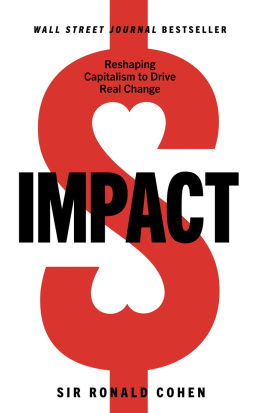

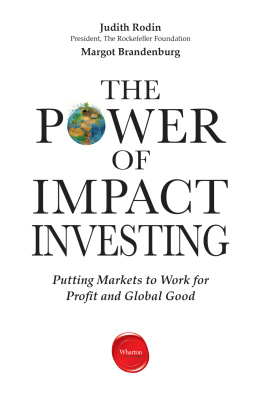
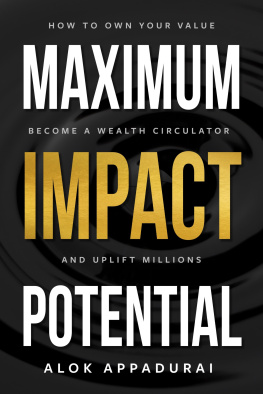

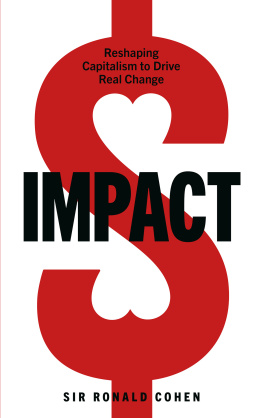
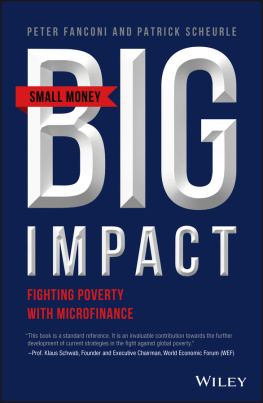
![Keith A. Allman [Keith A. Allman] - Impact Investment: A Practical Guide to Investment Process and Social Impact Analysis](/uploads/posts/book/124124/thumbs/keith-a-allman-keith-a-allman-impact.jpg)




